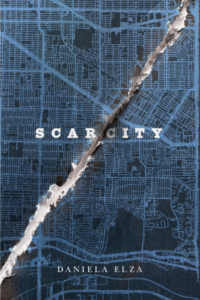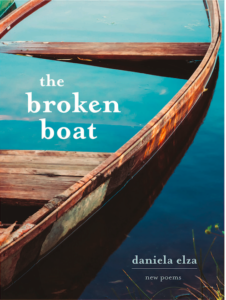invitation to daydream in miniature
Posted by Daniela Elza on Jul 26 2007
It is summer, yes sometimes I have to remind myself of that since it has been raining quite a bit here. If I ignore the rain, and still forget it is summer, the kids are sure to remind me. In the midst of this, I am reading chapter seven of The Poetics of Space by Gaston Bachelard. It is titled miniature.
I look at my kids and see these miniature adults walking around my house, in their wisdom, in their imaginings pure and powerful, with no school work to dilute or dampen their vast summer cosmos (only a fraction of which is available to me through their words and pictures). Not even the rain has hands small enough to touch their summer daydreams, and if it does it is only to contribute to them.
I look at the moss growing on the surface of my potted plants and I see the forests Bachelard is talking about. “…from the forest in a diastole to the forest in a systole, there is the breathing of cosmicity”(p. 162).
What is it with miniature that affects us so much deeper? “Miniature is an exercise that has metaphysical freshness; it allows us to be world conscious at slight risk” (p. 161). A place, he says, where the imagination is both vigilant and content.
How often do we practice the art of miniature? Do we have time “in this world of ours, to love things as see them at close range, in the plentitude of their smallness?” And if we do not, do we readily give in to the writers who invite this by creating space in their stories for such worlds.
“All small things must evolve slowly, and certainly a long period of leisure, in a quiet room, was needed to miniaturize the world.”
This comes naturally to my kids. I remember the long (endless summers) in which there was time for many adventures in a patch of sunlight and everything it revealed. Or where a carboard box becomes a palace. Or a hole in the ground—the beginning of an elaborate story of underground exploration.
I know, once we touch on the word leisure, not to mention long periods, it is easy as adults to start making excuses. But before you do that and dismiss it politely, or less so, think of your day and all those moments in between. Moments we do not readily think of as available time. That is where you start.
And what is the use of this, someone may ask? I will not even engage in questions like that? What is the use of anything we do? What is the use of reading, of telling a good story? Of spending time with a good friend? Or of getting your feet wet in the ocean?
George Orr in How Beautiful the Beloved reminds us:
“no meaning but what we find here
no purpose but what we make”
So when we read, how do we read? Just for the plot? Linearly or vertically? Or both?
Bachelard tells us:
“This is one of the many daydreams that take us out of this world into another, and the novelist needed it to transport us into the region beyond the world that is the world of new love. People who are hurried by the affairs of men will not enter there. Indeed the reader of a book that follows the undulations of a great love may be surprised at this inerruption through cosmicity. But he only gives a book a linear reading that follows the thread of the human events. For this reader, events do not need a picture. And linear reading deprives us of countless daydreams.
Daydreams of this sort are invitations to verticality, pauses in the narrative during which the reader is invited to dream. They are very pure, since they have no use.” (p. 162)
What is this reigon of new love? Is it this pure way of seeing? This new way? This way of surprise? Isn’t that poetry? Narrative is I agree very important, especially in narrative genres. Narrative is good in poetry, but more important is the possibility to dream with the reader. By fracturing the narrative we are creating a space, a space where the imagination has to come in and do some overtime work. By fracturing the lines and the page we are getting away from the linearity of everyday thought and speech, and enter the realm of the vertical dwelling. That is the realm of the imagination. Dangling off the last letter of a line allows an extra second to fly on our own before we land in the writers grip again.
I do not find enough of that as I go through literary journals. Sometimes I feel so much taken by the narrative that I feel I am trapped in the writers life. I do not feel I am reading a poem. If I come to the end of the poem and ask myself so what then maybe there was not enough of me engaged to dream my own dream on the page, not enough for me to hold onto.
Maybe here somewhere is also the difference between wow writing and so what writing. A place where both types of writers can make mountains out of molehills, but the question ultimately remains whose mountain does it end up being?
And here come the kids. I always have to look up, for they stand on top of mountains they have built while I was not looking. Most of them are really worth climbing. And the view from there is startling. So who is really the poet here? Is it them inviting me, or is it me making the effort in the climb?





